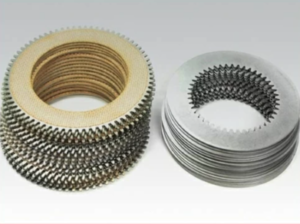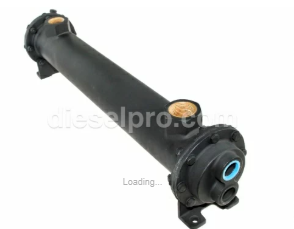
Parts Catalog for Twin Disc MG5090A Marine Transmissions
Plate Kit For Twin Disc MG5090A Marine Transmission
Gasket Kits For Twin Disc MG5091 Marine Transmission
Maintain a Log of Service Intervals and Parts Replaced
Keeping accurate records is one of the most overlooked yet crucial aspects of marine gear maintenance. A detailed service log for your Twin Disc MG-5090A transmission serves several important purposes:
- Diagnostic Clarity: When issues arise, service history allows you to trace recurring problems, pinpoint patterns, and better understand what components are prone to wear. For example, if you notice that clutch packs need replacement every 800 hours instead of the expected 2,000–3,000 hours, the log may lead you to identify a larger issue like alignment or cooling problems.
- Regulatory Compliance: In commercial marine operations—especially fishing fleets, passenger boats, and tugboats—regulations may require regular maintenance logs for insurance audits, inspections, and port authorities.
- Warranty and Claims Support: Should you ever need to file a warranty claim or demonstrate maintenance responsibility, your recordkeeping can make or break a successful resolution.
- Resale Value: When it comes time to sell or transfer ownership, a well-documented service history significantly increases the value and trust in your equipment. Buyers will have confidence that their MG-5090A transmission was professionally cared for, especially if the records include specific parts used, oil brands, hours logged, and dates of service.
Recommended log entries:
- Date and hour meter reading
- Type of service performed (oil change, clutch rebuild, etc.)
- Parts replaced (with part numbers and supplier)
- Technician name or company
- Notes about performance before and after service
- Oil pressure readings and operating temperature
You can maintain your log digitally using fleet management software or a simple spreadsheet. Diesel Pro Power offers digital service records for fleet customers—contact support to learn more.
Always Use Premium Aftermarket Parts From Reliable Suppliers Such as Diesel Pro Power

Using quality replacement parts is essential when maintaining the longevity and reliability of the Twin Disc MG-5090A marine transmission. While the original OEM parts are often associated with top-tier performance, aftermarket parts from trusted sources such as Diesel Pro Power are built to equal or exceed OEM standards—often with better pricing and availability.
Why premium aftermarket matters:
- Fit and Finish: Inferior parts may have incorrect tolerances, poor heat treatment, or cheap materials. Diesel Pro’s premium aftermarket components are designed to match OEM dimensions and performance specs precisely.
- Availability: Original parts can be difficult to source and take weeks or months to arrive. Diesel Pro maintains a large, ready-to-ship inventory of MG-5090A parts, including full rebuild kits, clutch plates, gaskets, filters, and more.
- Warranty Support: Diesel Pro Power offers an OEM-matching warranty on rebuild kits and components, giving you peace of mind when making repairs.
- Expert Support: Choosing the correct part number, clutch plate thickness, or oil spec can be confusing. Diesel Pro’s team can guide you to the right fit, ensuring no downtime due to misorders or returns.
Common aftermarket parts to stock on board or in-shop:
- Oil filters
- Clutch plate kits
- Input and output shaft seals
- Cooler replacement elements
- Control valve rebuild kits
- Gasket and seal kits
- Mounting hardware and fasteners
Cutting corners on part quality may save you a few dollars upfront but can result in catastrophic transmission failure that costs thousands in repairs, tows, and lost time. Always opt for high-quality, precision-machined parts from a reputable supplier.
If Your MG-5090A Transmission Has Undergone Repeated Clutch Replacements, Inspect Engine Alignment and Propeller Loading—Issues Upstream Can Cause Premature Wear

Clutch problems are not always rooted in the transmission itself. If you’ve replaced clutch plates more than once in a short timeframe—typically within 500 to 1,000 hours—it’s time to zoom out and look at the upstream factors affecting your transmission:
1. Engine Alignment:
Poor engine-to-transmission alignment is one of the most common causes of premature clutch wear. Misalignment forces the input shaft to rotate off-center, increasing stress on the clutch pack, bearings, and gears.
Checkpoints for alignment issues:
- Excessive vibration at certain RPMs
- Premature shaft seal leaks
- Abnormal gear noise
- Difficulty engaging forward or reverse
To correct alignment:
- Use a dial indicator to check concentricity and parallelism.
- Inspect engine mounts for sagging or distortion.
- Replace worn mounts and re-align the engine with shims or adjustment screws.
2. Propeller Load Mismatch:
A propeller that is oversized, damaged, or improperly pitched can overload the transmission. This results in overheating, slippage, and excessive clutch wear.
Signs of propeller mismatch:
- Engine bogs down under load
- High fuel consumption
- Poor acceleration or top speed
- Clutch slipping despite normal oil pressure
Have a marine propeller specialist confirm your propeller’s size, pitch, and blade count matches the MG-5090A’s reduction ratio and engine RPM range.
3. Control System Lag or Incorrect Shifting:
If your vessel uses an electronic control system (like the Twin Disc EC300), delays in clutch actuation can cause heat buildup and premature wear. Ensure control cables are adjusted correctly or that the electronic control is synced and calibrated.
By addressing these root causes, you’ll extend clutch life dramatically and reduce your maintenance costs over time.
Do Not Delay Oil Changes; Dirty or Degraded Oil Is the #1 Killer of Marine Gear Life
If there’s one golden rule in marine transmission care, it’s this: clean oil equals a long life. Dirty, degraded, or overheated oil will destroy the internal clutch plates, bearings, and gears of your MG-5090A faster than any other cause.
Why oil condition matters:
- Hydraulic Pressure: The MG-5090A uses hydraulic pressure to engage clutches. Dirty oil leads to low pressure, slow shifts, and slippage.
- Lubrication Breakdown: Heat and contaminants cause oil to lose its lubricating properties, resulting in metal-to-metal contact.
- Contamination: Water intrusion (often via coolers or seals) emulsifies with oil and causes foaming, corrosion, and heat damage.
- Oxidation and Acid Formation: Old oil oxidizes and becomes acidic, corroding internal parts and varnishing valve surfaces.
How often should you change the oil?
Every 250–500 hours depending on vessel type, operating load, and environmental conditions. Always change the oil if:
- The oil is dark, smells burnt, or feels gritty.
- The vessel operated in shallow or silty water.
- The transmission ran hot during the last trip.
Pro Tip: Keep a sample of used oil in a clear jar onboard for visual inspection and compare it against fresh oil.
Use only oils that meet Twin Disc or equivalent marine transmission fluid specifications. Diesel Pro Power can assist in selecting a compatible premium oil and offers it in bulk for fleet customers.
For Harsh Environments or Commercial Vessels Running Over 1,000 Hours Per Year, Shorten Your Oil and Filter Intervals Accordingly

The factory maintenance schedule for the MG-5090A is designed for standard use. But not all vessels live the same life. If your boat operates in demanding conditions, you must adjust your maintenance intervals.
Examples of harsh duty environments:
- Commercial fishing boats running dawn-to-dusk daily
- Tugboats involved in heavy towing and frequent shifting
- Passenger ferries with continuous idle-reverse cycles
- Vessels in tropical climates where oil temperatures are constantly elevated
- Vessels in silty, muddy, or corrosive waters
In these situations, we recommend the following maintenance frequency:
- Oil and filter changes every 250 hours or 60 days
- Cooler inspections every 500 hours
- Clutch pack inspection every 1,500–2,000 hours
- Full rebuild or overhaul at 5,000 hours, depending on service records
Commercial operators should consider building these shorter intervals into their preventive maintenance schedule. Fleet downtime can cost thousands per day—so proactive service pays off.
Pro Tip: Use an hour meter and oil change sticker to remind operators when maintenance is due. Diesel Pro also offers service reminder kits to install near the helm.
Additional Final Service Considerations For Twin Disc MG-5090A Marine Gear
1. Winterization and Long-Term Storage
If the vessel will be inactive for extended periods:
- Drain and refill with fresh oil to prevent acid buildup.
- Fog the internal components using a rust-inhibiting oil mist.
- Cover external shaft seals and vent holes to avoid moisture intrusion.
- Spin the input shaft every 30 days to prevent rust spots and bearing wear.
2. Start-Up After Lay-Up
After prolonged storage:
- Inspect the oil for moisture.
- Manually rotate the input shaft several times.
- Confirm free clutch movement before starting the engine.
- Run in neutral for 5–10 minutes before applying load.
3. Emergency Spare Kits
Keep a basic service kit onboard:
- 1x Oil Filter
- 6–8 Quarts of Transmission Oil
- Input/Output Shaft Seals
- Shift Lever Seal Kit
- Cooler Bypass Hose (if applicable)
This can save your voyage if you experience minor seal leaks or oil loss offshore.
4. Training for Crew
Ensure your crew knows how to:
- Check oil level and pressure
- Identify abnormal noises
- Report slippage or hard shifting
- Perform basic filter changes if required
Diesel Pro Power can supply laminated quick-reference cards for engine room use.
5. Data Plate Reference
Always take a photo of the transmission data plate and store it on your phone or in the vessel records. This includes:
- Transmission model (MG-5090A)
- Serial number
- Gear ratio
- Assembly code
This data ensures the correct parts are ordered and helps support technicians provide faster assistance.
Summary of Best Practices For Twin Disc MG-5090A Marine Gear
- Track every service in a dedicated logbook or software
- Use only premium aftermarket parts from Diesel Pro Power
- Inspect alignment and prop loading if clutch issues persist
- Never delay oil changes—clean oil is mission-critical
- Shorten intervals for high-hour or high-stress applications
- Prepare your vessel and crew with emergency spares and training
Need Help With Your MG-5090A Transmission?
Whether you need parts shipped today or want expert help troubleshooting a stubborn gear issue, Diesel Pro Power has your back. We carry everything from clutch plates and gasket kits to rebuilt MG-5090A units, and we ship globally.

Overhaul Plate Kit For Twin Disc MG5090A Marine Transmission
Gasket Kits For Twin Disc MG5090A Marine Transmission
Videos About Twin Disc Transmissions
6 Reasons Your Twin Disc Transmission Has Low Oil Pressure
7 Reasons Your Twin Disc Transmission Is Overheating
3 Reasons Your Clutch Plates in Your Twin Disc Transmission Are Making Excessive Noise
Bull Gear On A Twin Disc Transmission
Rebuilt Twin Disc Transmissions



 Free US Calls: 1-888-433-4735
Free US Calls: 1-888-433-4735 International: 305-545-5588
International: 305-545-5588